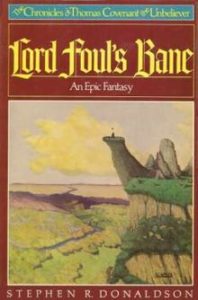Welcome to April.
We’ve talked a lot on this site about the art of writing. We’ve covered characters, we’ve covered plot, we’ve covered setting and theme. All of the big, large-scale things that make a good story great, and all of the artistic touches we, as artists, put into our work.
 But this month isn’t about any of that. This month, we’re getting really down to the nitty-gritty. Watch as our members seize upon their favorite piece of grammar, and expound upon the proper and improper uses of that rule. We’ve got Guy Anthony De Marco going on a tear about prepositional phrases. Quincy Allen is going to talk to us about the importance of diagramming every sentence you write in detail. I, personally, will be dealing with my trials and tribulations with the nefarious semicolon. Greg Little has an eye-opening piece on all of the wonderful things he does with conjunctions. And we’re going to end this month with a fight to the death between Nathan Barra and Kristin Luna over the Oxford comma–I’ll let you figure out who’s taking what side on that one.
But this month isn’t about any of that. This month, we’re getting really down to the nitty-gritty. Watch as our members seize upon their favorite piece of grammar, and expound upon the proper and improper uses of that rule. We’ve got Guy Anthony De Marco going on a tear about prepositional phrases. Quincy Allen is going to talk to us about the importance of diagramming every sentence you write in detail. I, personally, will be dealing with my trials and tribulations with the nefarious semicolon. Greg Little has an eye-opening piece on all of the wonderful things he does with conjunctions. And we’re going to end this month with a fight to the death between Nathan Barra and Kristin Luna over the Oxford comma–I’ll let you figure out who’s taking what side on that one.
So stay tuned, because this month is going to get past the art of writing into the true, deep, mechanics of the thing. And at the end of the day, if you manage to stick with it, you’re going to be amazed at what you’ve learned.
If you’ve made it this far, you probably realize what day it is.
That’s right; April Fool’s.
No, I didn’t intentionally sign us up for a whole month of grammar and punctuation. Yes, those things are pretty important, but I’m not about to make my first month picking a topic that boring. (I await the swarm of e-mails disappointed that this actually wasn’t the topic).
No, instead our theme for April is much more insidious. Our theme is the April of Fooling People.
See, it’s our job, as fiction writers to lie to the reader. Any time we write that something “happened,” it didn’t. That’s the fun of writing fiction; it’s all a lie. But the trick is in being good at lying to people.
And, what’s more, having one’s characters be good at it is an art in itself.
So, this month will be a month devoted to the art of deception. How to pull off a twist ending, unreliable narrators, scoundrels, and sleight of hand will all feature in the posts you see over the next month. So buckle up, folks, because sorting out what’s actually true over the next month is going to become a real issue as the Fictorians begin the April of Fooling People.


